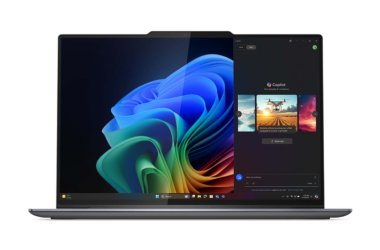 Intel expects tablets running its power-efficient chip code-named Oak Trail to become available next month, the company said recently.
Intel expects tablets running its power-efficient chip code-named Oak Trail to become available next month, the company said recently.
Intel announced Oak Trail last year in response to the growing demand for tablets. Then last month, Intel listed the Z670 chip for tablets on its price list, but devices running the chip are not yet available.
Oak Trail tablets will become available around the time of the Computex trade show, which will be held in Taipei between May 31 and June 4. Computex acts as a springboard for major device makers to show off and launch products. “Oak Trail tablets are expected to start hitting shelves in May and throughout 2011,” said an Intel spokeswoman. She declined to comment on specific customer designs and launch times.
A number of companies, including Lenovo, Fujitsu, Samsung and Motion Computing, have already shown off Oak Trail tablets running Windows 7.
At the Consumer Electronics Show in Las Vegas in January, Samsung showed off a hybrid PC and tablet device called PC7 in which the screen slid down to turn the device into a tablet. Lenovo and Motion Computing also showed off touchscreen tablets that felt slightly heavier than competing tablets powered by ARM processors. Motion Computing said the CL900 tablet would be targeted at corporate customers and that the device would start shipping in the second quarter of this year.
“Tablets based on Oak Trail chips could offer up to 10 hours of battery life, depending on screen sizes and configurations,” a Motion Computing executive said at CES. Intel has designed the single-core Z670 Oak Trail chip specifically for tablets. The chip has specialised hardware to quickly decode high-definition video and decoders to accelerate the playback of MPEG files in Windows Media Player. Intel is using a different graphics core than it uses on current Atom netbook chips.
The chip maker initially offered its Pine Trail netbook chips for tablets, which were adopted by a few companies like Hewlett-Packard and Cisco. But Intel is still a small player compared to ARM, whose processors go into most tablets today, including Apple’s iPad and Samsung’s Galaxy Tab.
Intel is also developing the Meego OS for tablets and smartphones. Without providing details, the Intel spokeswoman said the company expects to see Atom-based devices running Google’s Android OS in the “near future.”





